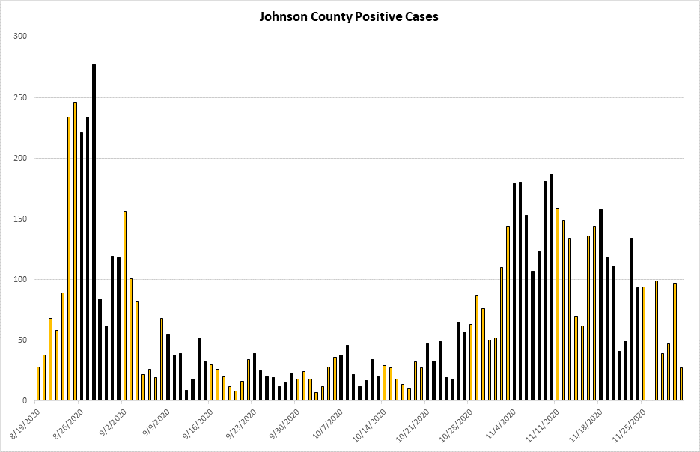Reminders for students
Fall semester grading policies
As a reminder, the university has returned to standard grading policies for fall 2020 and will not be utilizing P/N or S/U grading. We understand this has not been a traditional semester and that some students would prefer a P/N or S/U option, however, the university has taken the following steps to ensure students have as much choice as possible.
Last day to drop/withdraw
The university has extended the last day to drop a class or withdraw your registration until the last day of the semester, Friday, Dec. 18. You will need time to get all required approvals before finalizing your drop in MyUI. It will be helpful to discuss your situation with your advisor and initiate any drops or a withdrawal before this deadline day.
Transcript notation
Additionally, in recognition of the continuing impact of the pandemic, the university will be adding the following notation to fall 2020 transcripts: University operations and instruction continued to adapt to the global public health emergency. Many course offerings and modalities were impacted, which in turn may have affected an individual student’s experience in each course.
The university is committed to delivering excellent instruction allowing students to receive course credit and stay on their path toward degree completion and graduation.
Mental health resources: Managing the pandemic as a family
The unprecedented circumstances surrounding COVID-19 have created stress and uncertainty for individuals, families, communities, and health care providers. Families, in particular, are experiencing a shift in how they conduct their daily lives. Because our campus is made up of diverse family structures with multiple developmental needs and roles, a focusing on the fundamentals of well-being can be powerful in efforts to build and maintain resilience to effectively cope. Some examples include:
- Sleep: Improving sleep is one of the most important things that families and individuals can do regardless of where or how they work. Sleep is often disrupted either because of late-night studying, shift work, or childcare responsibilities that might be intensified if a person is socially or culturally isolated. The UI Employee Assistance Program and Student Wellness both have numerous resources to help with sleep.
- Budget challenges: COVID-19 is posing budgetary challenges for families through cutbacks, job loss, or increases in housing costs. Financial well-being information for faculty and staff can be found here. Resources for students who encounter an unforeseen financial emergency can be found on the Student Support Initiatives page.
- Families with young children: The stress posed by COVID-19 can disrupt family development and structure. Families are encouraged to discuss how each member is coping. Some strategies include:
- Take inventory of what each family member needs and determine safe ways to complete restorative activities such as cooking a meal together, taking a family walk outside, or video chatting with a family member or friend who lives elsewhere.
- If children are worried about family members becoming sick, talk about how to keep in touch with loved ones. Video chats can help ease stress.
- Model how to manage feelings. Talk through how you are managing your own feelings as an example.
- Tell your child before you leave the house for work or essential errands. Share where you are going, how long you will be gone, and the steps you are taking to stay safe.
- Keep healthy routines and re-evaluate existing routines.
For more information on these topics, see the Practical Options for Managing the Impact of the Pandemic page. For more information on child and elder care resources, see the Family Services page.
For more information about mental health resources, see mentalhealth.uiowa.edu.
For counseling and support, the Employee Assistance Program offers confidential counseling at no cost for UI employees and their families; or University Counseling Service offers confidential counseling and support for students.
Campus operations
The university continues to monitor self-reported COVID-19 testing data on campus, while also tracking state, region, and national COVID-19 infection rates. The university will continue to follow the latest guidance from the CDC in coordination with Johnson County Public Health, the Iowa Department of Public Health, and the Board of Regents, State of Iowa.

University of Iowa self-reported COVID-19 testing
These data reflect new cases since Nov. 30, 2020.
The University of Iowa has published an updated snapshot of self-reported positive COVID-19 tests from faculty, staff, and students.
Number of self-reported cases of COVID-19
Students
- New cases: 30
- Semester-to-date: 2,712
Employees
- New cases: 8
- Semester-to-date: 291
These numbers reflect only self-reported positive or presumed positive COVID-19 tests from UI faculty, staff, and students on the academic campus since Aug. 18, 2020. These data will not match data reported by UI Hospitals & Clinics or by the Iowa Department of Public Health for several reasons, including different testing time intervals and geographic scope. Students who also are employees of the university are only reported in the student number to avoid double counting. The UI has more than 30,000 students and nearly 30,000 employees. Many employees continue to work remotely but have self-reported to authorize sick leave.
Number of residence hall students in quarantine: 0*
Number of residence hall students in self-isolation: 2**
*Quarantine: Quarantine is used to keep someone who might have been exposed to COVID-19 away from others.
**Self-isolation: Isolation is used to separate people infected with the virus (those who are symptomatic and those with no symptoms) from people who are not infected.